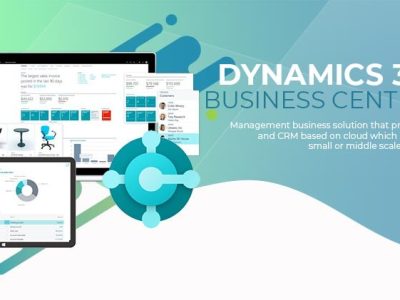The engineering industry operates in a complex environment, managing intricate projects, tight deadlines, and diverse teams across mechanical, civil, and electrical disciplines. To stay competitive, engineering firms need a robust system to unify their operations, from design to delivery. This is where an ERP for engineering industry solution, such as Microsoft Dynamics 365 for engineering, becomes indispensable. By leveraging Microsoft Business Central ERP, engineering firms can streamline processes, enhance collaboration, and drive digital transformation in engineering. In this blog, we’ll explore how ERP automation in engineering transforms workflows and positions firms for long-term success with Vatsin Technology Solutions as your trusted partner.
Why Engineering Firms Need ERP Solutions
Engineering firms face unique challenges, such as coordinating multidisciplinary teams, managing supply chains, and ensuring compliance with industry standards. Traditional methods, like spreadsheets or disconnected software, often lead to inefficiencies, miscommunication, and delays. An ERP for engineering industry addresses these pain points by providing a centralized platform to manage all aspects of operations.
Unifying Complex Operations
An ERP for engineering industry integrates key functions like project management, procurement, and financials into a single system. With Microsoft Dynamics 365 for engineering, firms can track every stage of a project — from design to execution — ensuring seamless communication across teams. This unification reduces silos, minimizes errors, and keeps projects on track, fostering efficiency across the board.
Enhancing Decision-Making with Real-Time Insights
Engineering projects require quick, informed decisions to manage resources and timelines effectively. Microsoft Business Central ERP offers real-time data visibility, enabling project managers to monitor progress, allocate resources, and address bottlenecks promptly. This data-driven approach, a cornerstone of digital transformation in engineering, ensures firms stay agile in a fast-paced industry.
Key Benefits of ERP for the Engineering Industry
Adopting an ERP for engineering industry brings transformative benefits, helping firms optimize operations and stay competitive. Let’s dive into how Microsoft Dynamics 365 for engineering delivers value across various aspects of engineering workflows.
Streamlined Project Management
Engineering projects often involve multiple phases, stakeholders, and deliverables. Microsoft Business Central ERP provides tools to manage these complexities, from scheduling tasks to tracking milestones. With ERP automation in engineering, repetitive tasks like updating project timelines or generating reports are handled seamlessly, allowing teams to focus on innovation and execution.
Optimized Supply Chain Management
The engineering industry relies heavily on a robust supply chain for raw materials, components, and equipment. An ERP for engineering industry ensures smooth procurement, inventory management, and vendor coordination. By leveraging Microsoft Dynamics 365 for engineering, firms can anticipate demand, manage stock levels, and maintain a resilient supply chain, reducing delays and ensuring project continuity.
Improved Financial Oversight
Financial management is critical for engineering firms, where projects often involve significant budgets. Microsoft Business Central ERP offers tools for budgeting, cost tracking, and invoicing, ensuring transparency and control over project finances. This integration of financial data with operational workflows supports better cost management, a key aspect of digital transformation in engineering.
The Role of ERP Automation in Engineering
Automation is reshaping the engineering industry, and ERP automation in engineering is at the forefront of this shift. By automating repetitive tasks and workflows, engineering firms can enhance productivity and focus on high-value activities.
Automating Routine Processes
From generating purchase orders to scheduling maintenance, manual processes can slow down engineering operations. Microsoft Dynamics 365 for engineering automates these tasks, reducing the risk of errors and freeing up time for strategic planning. This level of ERP automation in engineering ensures that teams can dedicate their efforts to design, innovation, and client satisfaction.
Enabling Predictive Maintenance with ERP
Downtime in engineering operations can be costly, especially when equipment failures disrupt projects. Predictive maintenance ERP solutions integrated with Microsoft Business Central ERP use data analytics to monitor equipment health and predict potential issues. This proactive approach minimizes disruptions, ensuring smooth operations and supporting digital transformation in engineering.
Integrating IoT with ERP for Smarter Engineering Operations
The Internet of Things (IoT) is revolutionizing the engineering industry by connecting devices and providing real-time data. When combined with an ERP for engineering industry, IoT can unlock smarter, more efficient operations.
Leveraging IoT in ERP for Engineering
With IoT in ERP for engineering, firms can monitor machinery, track project progress, and collect data from the field in real time. Microsoft Dynamics 365 for engineering integrates seamlessly with IoT devices, providing insights into equipment performance, energy usage, and more. This connectivity enhances decision-making and operational efficiency, a key driver of digital transformation in engineering.
Enhancing Manufacturing and Maintenance
For engineering firms involved in manufacturing, IoT in ERP for engineering enables real-time monitoring of production lines. This integration with Microsoft Business Central ERP helps identify bottlenecks, optimize workflows, and schedule maintenance proactively, ensuring uninterrupted production and aligning with modern engineering demands.
Supporting Sustainable Engineering with ERP
Sustainability is a growing priority in the engineering industry, with firms seeking to reduce their environmental impact. An ERP for engineering industry can play a pivotal role in achieving these goals by optimizing resource use and supporting green practices.
Driving Sustainable Engineering ERP Practices
A sustainable engineering ERP solution like Microsoft Dynamics 365 for engineering helps firms track resource consumption, manage waste, and monitor energy usage. By providing visibility into these metrics, Microsoft Business Central ERP enables engineering firms to adopt eco-friendly practices, contributing to broader sustainability goals while maintaining operational efficiency.
Aligning with Industry Standards
Engineering firms often need to comply with environmental regulations and certifications. ERP automation in engineering ensures that sustainability data is tracked and reported accurately, helping firms meet industry standards. This alignment supports digital transformation in engineering by integrating sustainability into core operations.
Why Choose Microsoft Dynamics 365 for Engineering Firms?
Microsoft Dynamics 365 for engineering stands out as a leading ERP for engineering industry solution, offering flexibility, scalability, and advanced features tailored to the sector’s needs.
Cloud-Based Flexibility and Scalability
Hosted on Microsoft Azure, Microsoft Business Central ERP provides a cloud-based platform that scales with your business. Engineering firms can access data remotely, collaborate across teams, and add new functionalities as needed, ensuring they remain agile in a competitive landscape. This flexibility is a key component of digital transformation in engineering.
Seamless Integration with Microsoft 365
Engineering teams often rely on tools like Excel, Teams, and Power BI for collaboration and reporting. Microsoft Dynamics 365 for engineering integrates seamlessly with Microsoft 365, enabling teams to work within familiar applications while accessing ERP data. This connectivity enhances productivity and supports ERP automation in engineering.
AI-Driven Insights for Smarter Decisions
AI is transforming the engineering industry, and Microsoft Business Central ERP incorporates AI tools like Copilot to provide predictive insights. From forecasting project delays to optimizing resource allocation, these capabilities help engineering firms make smarter decisions, reinforcing digital transformation in engineering.
Overcoming Common Challenges in ERP Implementation
Implementing an ERP for engineering industry can seem daunting, but with the right approach, it becomes a rewarding investment. Here’s how to address common concerns:
Managing Complexity of Implementation
Engineering firms often worry about the complexity of transitioning to a new ERP system. Partnering with a trusted provider like Vatsin Technology Solutions ensures a phased approach, starting with core modules and expanding as needed. This strategy minimizes disruptions while maximizing the benefits of Microsoft Dynamics 365 for engineering.
Ensuring User Adoption
Adopting a new system requires team buy-in. Microsoft Business Central ERP offers an intuitive interface, and Vatsin provides comprehensive training to ensure employees can navigate the system confidently. This focus on user adoption supports ERP automation in engineering and long-term success.
Partner with Vatsin for Your ERP Journey
At Vatsin Technology Solutions, we specialize in helping engineering firms implement Microsoft Dynamics 365 for engineering, ensuring a seamless transition to Microsoft Business Central ERP. From planning and migration to training and support, we’re with you every step of the way, helping you achieve digital transformation in engineering.






